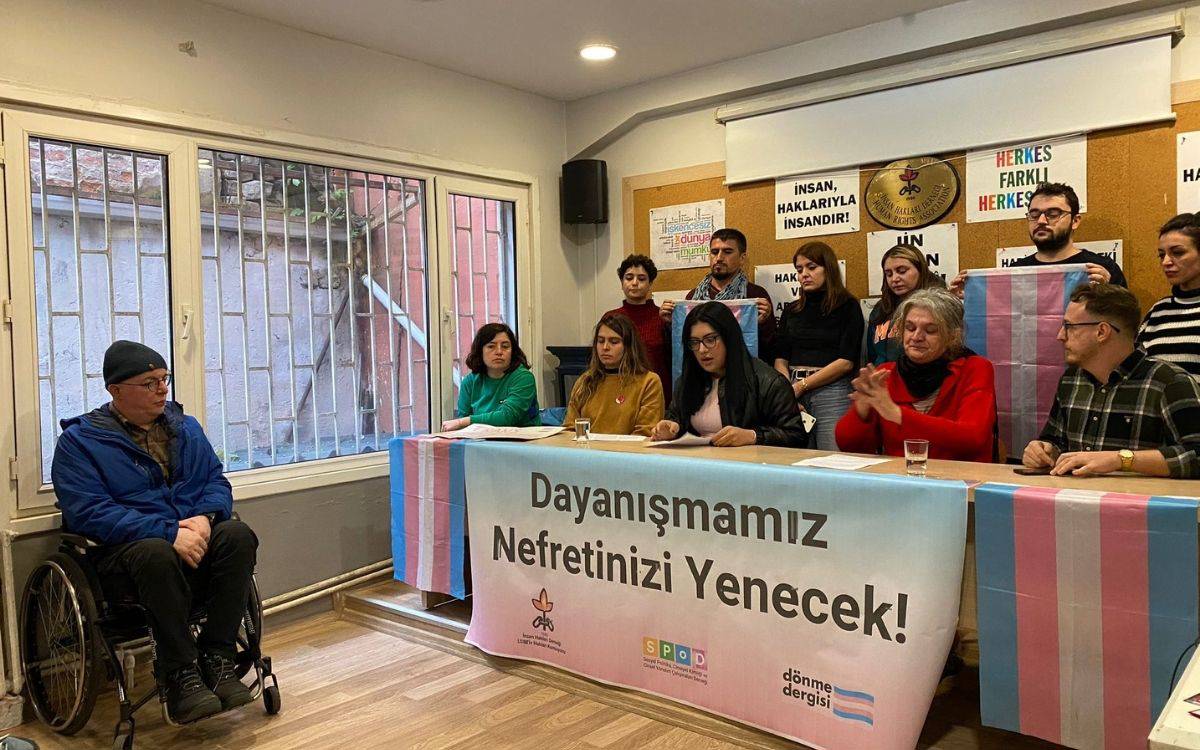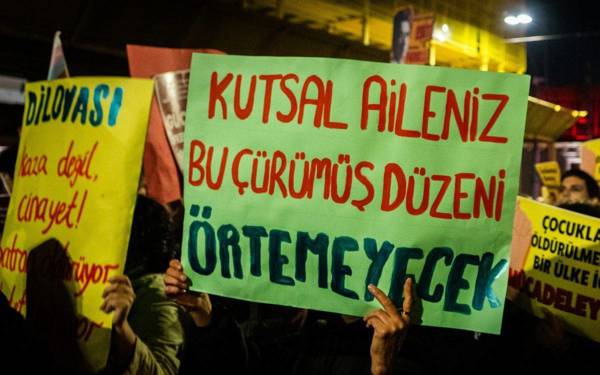In the case of "Przybyszewska and Others v. Poland," the European Court of Human Rights (ECtHR) ruled that the right to respect for private and family life was violated.
In other words, similar to decisions regarding Russia, Ukraine, Romania, and Bulgaria, the ECtHR's First Section unanimously decided that Poland violated the right to respect for private life due to the "lack of any legal recognition of same-sex relationships."
The ECtHR has ruled that the Republic of Poland has failed in its obligation to establish a specific legal framework ensuring the recognition and protection of the applicants' same-sex relationships.
In EU member states Bulgaria, Lithuania, Latvia, Poland, Romania, and Slovakia, same-sex marriages are not permitted, and there is no marriage equality.
Dr. Serkan Köybaşı, Head of the Constitutional Law Department at Bahçeşehir University Faculty of Law, provided commentary for bianet on what the ECtHR's decision means for Turkey:
* This decision of the ECtHR is binding for Turkey for two main reasons. Firstly, Article 46 of the European Convention on Human Rights regulates that decisions of the Strasbourg Court are binding on member states.
* Secondly, and more importantly, the last paragraph of Article 90 of the 1982 Constitution states that ECtHR decisions take precedence over laws. This paragraph was added in 2004 while the Justice and Development Party (AKP) was in power, was accepted with a large majority in the Turkish Grand National Assembly, and was incorporated into the Constitution without the need for a referendum.
* The paragraph orders the disregarding of laws in case of conflicting national laws and international agreements on fundamental rights and freedoms on similar issues. ECtHR decisions are also considered a part of the ECHR under Article 46. Therefore, the decisions of the Court should be directly applied in accordance with the Constitution when they conflict with our laws since they are superior to them.
* Regarding the recent decision against Poland, the issue stems from the non-recognition of marriages of same-sex couples and the absence of regulations on this matter in Poland. Five couples who have been living together for many years apply for the recognition of their partnerships to get married and benefit from the rights associated with marriage, just like heterosexual couples. However, their applications are rejected legally since only the marriage between a man and a woman is allowed, and the legal system does not officially recognize any other type of relationship.
*As we know, there is no regulation in Turkey recognizing the regular relationships of same-sex couples. Therefore, we are in the same situation as Poland. We should now make arrangements to officially recognize same-sex relationships, even if not in the form of marriage, and allow them to benefit from the rights acquired through marriage.
*If a same-sex couple from Turkey makes a similar application to the Constitutional Court today by exhausting domestic legal remedies, a similar violation decision should be issued because this would be in accordance with the law and the constitution.
*In Turkey, we are aware that the LGBTQ+ community lacks legal protection and faces various human rights violations every day. Besides being unable to benefit from marriage equality, it is evident that the state does not fulfill its positive obligations to prevent the daily challenges faced by openly identified LGBTQ+ individuals, such as finding employment and renting a home.
*On the contrary, the individual freedom of expression of LGBTQ+ individuals is restricted, pressure is exerted on their associations, they are marginalized, and they are subjected to hostility by state organs that have an obligation to protect all minorities, including sexual minorities.
*Each of these constitutes a separate violation of rights. Judiciary organs, especially the Constitutional Court, should guide the executive and legislative branches in respecting rights within the framework of both the European Convention on Human Rights (ECHR) and the equality and respect for private life principles in our own constitution, as demonstrated in the decision against Poland. They should make decisions to ensure that everyone benefits from rights and freedoms.

Amor: The solution for Turkey is the "Back to the Future" movie

LGBTI+ organizations: Transphobia is a crime
ECHR Article 8
The right to respect for private life is regulated in Article 8 of the European Convention on Human Rights (Convention), which is one of the most broadly interpreted articles of the Convention. In this article, it is stated that "everyone has the right to respect for their private and family life, their home, and their correspondence."
In the last paragraph of Article 90, the rule is established that "duly enacted international treaties are equivalent to laws. Claims of inconsistency with the Constitution cannot be brought before the Constitutional Court concerning these treaties."
LGBTI+ Rights in Poland
Verbal attacks against the LGBTI+ community by the Polish government and the Roman Catholic Church deepen homophobia in the country, while also emboldening homophobic citizens. According to a 2021 report by The New York Times, due to the increasing physical violence against them, LGBTI+ individuals are leaving the country to survive.
According to a survey by ILGA-Europe (International Lesbian, Gay, Bisexual, Trans and Intersex Association), Poland is among the most homophobic countries in the European Union (EU).
LGBTI+ Rights in Turkey
ILGA-Europe's "Annual Review of the Human Rights Situation of LGBTI Persons in Europe and Central Asia," for 2022, reveals that 2022 has been the worst year in the last decade due to both planned and wild attacks, as well as widespread hate speech from politicians, religious leaders, right-wing organizations, and the media.
The Turkey section of the report also includes striking data. The report, with direct contributions from Kaos GL and the 17 May Association, highlights the systematic hate speech by President Recep Tayyip Erdoğan and the former Interior Minister Süleyman Soylu. The report mentions ISIS threats against LGBTI+ organizations, hate rallies under the name "Great Family March," Islamists threatening LGBTI+ individuals with death, hate crimes, and ongoing cases. Another highlighted issue is the obstacles to the transition/adaptation process for trans individuals and the increasing prevalence of "conversion therapy" torture.
Some of the headings in the report include: Discrimination against LGBTI+ refugees, unemployment, police torture, bans on pride marches, censorship by the Radio and Television Supreme Council (RTÜK), deprivation of housing rights, deepening poverty, and discrimination by TİHEK (Human Rights and Equality Institution of Turkey).
(EMK/PE)











